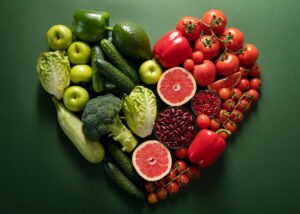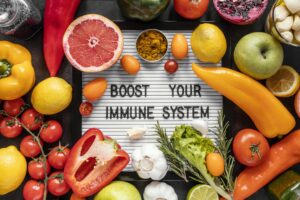Superfoods or Super Myths?
The pursuit of improved health and disease prevention has resulted in the proliferation of “superfoods,” a term used to characterize foods believed to have extraordinary health benefits. While a diet rich in fruits, vegetables and whole grains is unquestionably essential for overall health, it is important to distinguish fact from fiction regarding the role of these so-called superfoods in cancer prevention.
Myth 1: Superfoods Can Cure Cancer
There is a widespread misconception that certain substances can cure cancer. While certain foods are rich in essential nutrients and antioxidants that promote overall health, no single food or combination of foods can cure cancer on their own.
Cancer is a disease with multiple causes and risk factors such as genetics, lifestyle, and the environment. A nutritious diet can significantly reduce the risk of cancer, but it cannot eliminate the possibility of cancer altogether. It is essential to view superfoods as part of a holistic approach to health, not as miracle remedies.
Fact 1: Superfoods Can Reduce Cancer Risk
 Although micronutrients are not necessarily “cures” for cancer, incorporating them into a healthy diet can reduce the risk of developing the disease. Numerous superfoods are abundant in antioxidants, vitamins, minerals, and phytochemicals, which have been linked to a reduced risk of cancer. Here are some illustrations:
Although micronutrients are not necessarily “cures” for cancer, incorporating them into a healthy diet can reduce the risk of developing the disease. Numerous superfoods are abundant in antioxidants, vitamins, minerals, and phytochemicals, which have been linked to a reduced risk of cancer. Here are some illustrations:
Blueberries, strawberries and raspberries are rich in antioxidants that protect cells from oxidative injury, a factor in the development of cancer.
Cruciferous Vegetables: Cruciferous vegetables such as broccoli, cauliflower and Brussels sprouts contain compounds that may inhibit the proliferation of cancer cells.
Kale, spinach and Swiss chard are rich in vitamins, minerals and fibre, which promote overall health.
Tomatoes rich in lycopene, are associated with a decreased incidence of prostate cancer.
Salmon, mackerel and sardines are fatty fish that contain omega-3 fatty acids, which may reduce the risk of certain tumours.
Myth 2: Superfoods Are the Only Cancer-Prevention Factor
The belief that micronutrients are the sole factor in cancer prevention is a second fallacy. A nutritious diet is essential, but it is only one component of a comprehensive plan to reduce cancer risk.
Other important aspects of cancer prevention include:

To reduce cancer risk, avoiding smoking and excessive alcohol consumption, maintaining a healthy weight, and engaging in regular physical activity are of equal importance.
Regular Screening: Cancer screenings such as mammograms, colonoscopies and skin examinations can significantly increase the likelihood of successful treatment through early detection.
Environmental Factors: Minimizing exposure to environmental carcinogens, such as UV radiation and toxic substances, can also reduce the risk of cancer.
Balanced diet and lifestyle are important
 To maximise the benefits of nutrients and reduce cancer risk, a balanced diet and lifestyle are essential. A balanced approach comprises:
To maximise the benefits of nutrients and reduce cancer risk, a balanced diet and lifestyle are essential. A balanced approach comprises:
Rather than focusing on specific superfoods, strive for a diet rich in fruits, vegetables, whole grains, lean proteins, and healthy fats.
Portion control is essential for maintaining a healthy weight and reducing the risk of malignancies associated with obesity.
Physical Activity: Regular exercise can help maintain a healthy weight and reduce the risk of developing cancer.
Smoking is a known carcinogen, and excessive alcohol consumption can increase the risk of developing cancer.
The conclusion
Although superfoods are not magical cancer cures, they can reduce cancer risk when consumed as part of a balanced diet and healthy lifestyle. However, it’s essential to dispel the myths surrounding these foods and comprehend that cancer prevention is a multifaceted endeavour. A holistic approach that incorporates a varied diet, physical activity, the avoidance of tobacco and excessive alcohol consumption, and regular screenings is the most effective method for reducing the risk of cancer and maintaining overall health.





